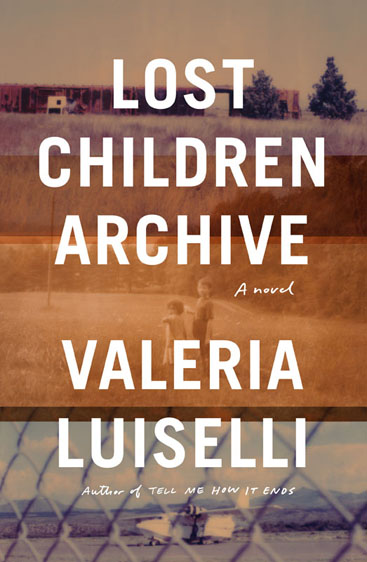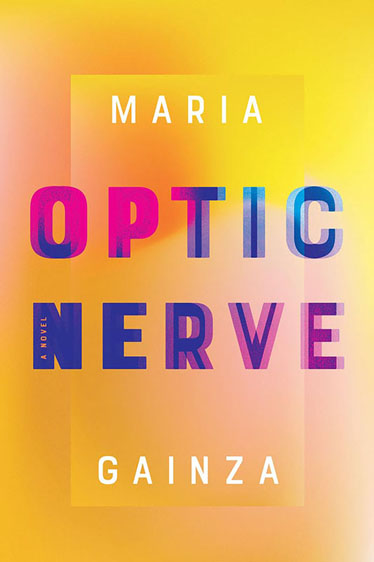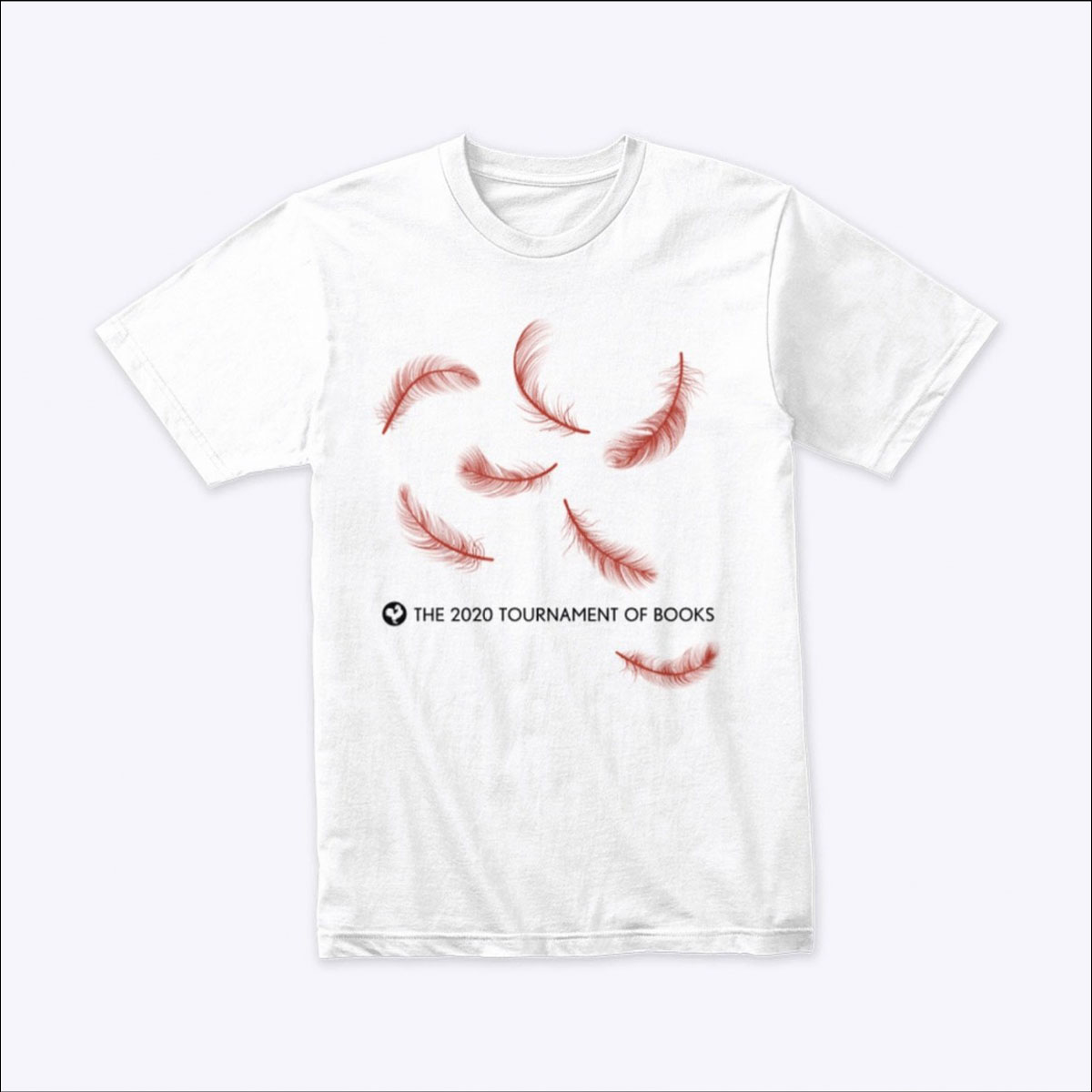Kevin Guilfoile: Surprise, everyone! It’s me and John up here where the judgment usually is, instead of down there on the clown stage where we usually are confined. Rosecrans and Andrew have given us the key code to the judge’s chambers because we have a turn of events that, while unusual, shouldn’t be all that unexpected.
These times are challenging for all of us. Circumstances are such that today’s decider, Jeanna Kadlec, was simply unable to write a judgment for personal reasons—but she did read the books and made a choice, which we will get to in a minute.
Over the years we have had several decisions that were nonconforming. Fourteen years ago, Dale Peck was a judge in this competition. If you don’t know Dale Peck, he once was sort of the bad boy of literary criticism—the mid-2000s was a time when literary criticism could have such a thing as a bad boy—and he earned this title by hating everything and constantly saying that virtually any novel anybody was writing, certainly any novel anybody was enjoying, was crap, all while occasionally writing his own books. It was weird. Anyway, we asked him to participate in the ToB, where he refused to advance either of the novels he was assigned. Going back over our commentary from that match, John, I am reminded that you and I used to be a lot meaner. Or at least we were to Dale Peck.
John Warner: I’m cringing at everyone involved in that scenario.
Kevin: We resolved that dilemma by flipping a coin. The winner of that coin flip, Ali Smith’s The Accidental, went on to win the Rooster, a lesson for anyone who begins to doubt that this entire exercise is entirely arbitrary.
John: In 2010, “musician and party maker” Andrew WK was tasked with choosing between Wolf Hall and The Lacuna, and he picked Wolf Hall because he liked the cover better (or more specifically, he preferred it for its “intricate book production”).
Guess what? Wolf Hall went on to win the Rooster.
Kevin: In his judgment several years ago, singer-songwriter Stephin Merritt (Magnetic Fields) eviscerated a pair of acclaimed novels (An Untamed State and All the Light We Cannot See), and he did it in a way that seemed sort of simplistic and literal for an artist (and an artist I admire a lot) who should be used to having his own work criticized (and sometimes misunderstood). Maybe he was just trying to be curmudgeonly, but the resulting discussion—between you and me and also among the Commentariat—is one of my all-time favorites in the ToB. Merritt grudgingly advanced All the Light We Cannot See. And guess what? OK, All the Light We Cannot See was beaten pretty soundly by Station Eleven in the final. But it came close!
John: In this case, however, we have the most important element, which is a certified winner. And while we can’t give you the judge’s reasoning, we can try to reason through it a little bit ourselves.
Kevin: In recent ToBs there have been a number of books that were kind of interesting outliers the way Optic Nerve has been this year—I’m thinking about The Dictionary of Animal Languages in 2019, Fever Dream in 2018, The Vegetarian in 2017—that made deep runs for the Rooster by connecting viscerally to the reader. Each was an unconventional novel that just made the judges feel more. When given this special, unusual task to read two books and make a gut decision about which one you like better, there is something about that immediate, emotional connection that is very powerful.
John: As someone not particularly connected to Optic Nerve, I am unfortunately on the outside of that experience on this one. People routinely fail to find connection to books I think are mind-blowing, a fact that I am happy to accept and chalk up to differences in individual readers, but when the reverse is true, I admit to not having quite the same reaction. I sometimes (not always, but sometimes) feel like people are trying to put one over on me, to convince me that something is there that isn’t. I’m more likely to think they’re fooling themselves, but of course that’s absurd.
Your raising of Fever Dream and The Vegetarian, two books where I was on the inside, offers some interesting perspective. Fever Dream especially haunted my ass, and you just mentioning it brings back some measure of my original visceral reaction to the book.
I am not particularly pleased about Optic Nerve continuing to move on, but I promise not to be too salty about it. And in the end, I’m not wholly invested in Lost Children Archive either, so this is one that just passes me by.
From our match sponsor: This week’s episode of Bookin’ With Jason Jefferies is up with John Scalzi, author of The Last Emperox, the third volume in The Interdependency series. Signed copies of The Last Emperox can be ordered from Quail Ridge Books with FREE shipping. Thank you for supporting community bookstores!
Match Commentary
By Kevin Guilfoile & John Warner
Kevin Guilfoile: So anyway, John, what do you think of our explanation of the judgment?
John Warner: I think we did OK, but to be honest, there have been many superior judgments, possibly all of them. It’s tough because I think we would’ve gone the other way, though as I say in the judgment, I don’t have great passion for Lost Children Archive.
I’m still reading Optic Nerve, though, bit by bit. It isn’t repelling me, but neither has it ever managed to suck me in. Recently I’ve been wondering if some of it has to do with me reading it as an ebook. Normally my only e-reading is while I’m engaged in extended travel because I find the experience less satisfactory than the book itself.
I think there’s a number of reasons for this. There’s something about the size and shape of the object itself that helps signal how I’m expecting to approach the text. Mass-market paperbacks were created with just that in mind, the mass market. They’re small, printed on cheap paper, designed to be consumed quickly and thrown away. I’ve probably read more books in this format than any other in my lifetime, but I own/retain very few.
On the other hand, there’s the hardcover of Jenny Offill’s Weather that’s sitting on my desk, waiting to be read. It’s physically small in size with a matte cover. This tells me that it’s a book where I should expect to go slowly, savoring it line by line.
Glossy covers say something different to me than matte covers. For doorstop novels like the long-listed Ducks, Newburyport, seeing their heft matters to me.
All those things are hidden in the ebook format. For Optic Nerve, I’m missing something I often do with physical books, which is to preview how many pages I have to read before I can take a break without losing continuity. It’s easy to flip the pages and find a chapter break or white space and think, “Yeah, three pages and then I pass out for the night, I can do that.” It’s not as easy or quick to do on an e-reader and so I don’t do it. For Optic Nerve, this sometimes means leaving off in the middle of a section. Upon return, I find I can’t pick it right back up and wind up back at the start.
Small stuff for sure, but it’s frustrating.
Kevin: I’ll admit that I almost never read fiction as an ebook (although I do read a lot of nonfiction that way). The exception is the ToB, where you and I spend much of December and January trying to catch up on the books we haven’t read yet, and so I inevitably download a couple of shortlisters to my phone so I can read them whenever I have a few minutes of downtime. I suspect those novels are at a disadvantage when it comes to really grabbing me. I have trouble immersing myself in a story on a screen. Maybe next year I will go with audiobooks. The problem there is I’ll probably have to listen to the Rooster books at 1.5 speed or something in order to maximize that time, and I don’t like that much either. If anyone in the Commentariat has a good suggestion for improving my ebook/audiobook experience, I’d love to hear it.
In any event, Optic Nerve charges undefeated into tomorrow’s championship match, where it will take on Normal People, which found new life as a Zombie. This is a fascinating final, John. Normal People was one of my favorites in the competition, but it comes in virtually untested, having won just one match in the competition so far. We’ll find out tomorrow how these books will do in front of the entire jury of this year’s adjudicators.
John: Normal People was one of my favorites as well, though apparently hugely polarizing among the Commentariat, so a fascinating matchup indeed.
Kevin: As for today, we will have our annual Contest of the Commentariat. Along with your usual insight, include your pick for tomorrow’s winner, along with your prediction of the final tally. There are 17 jurors, so an entry might be Optic Nerve, 10-7; or Normal People, 9-8.
The winner will receive a special package of love courtesy of our sponsor, Field Notes, including a signed copy of my memoir, A Drive Into the Gap (published, as it is, by Field Notes Brand Books).
John: And I will throw in a signed copy of The Writer’s Practice, as well.
Kevin: Make your best guesses, and John and I will see you back here tomorrow with the verdict.
New 2020 Tournament of Books merch is now available at the TMN Store. As a reminder, Sustaining Members receive 50 percent off everything in our store. To find out why we’re asking for your support and how you can become a Sustaining Member, please visit our Membership page. Thank you.
Welcome to the Commentariat
Population: You
To keep our comments section as inclusive as possible for the book-loving public, please follow the guidelines below. We reserve the right to delete inappropriate or abusive comments, such as ad hominem attacks. We ban users who repeatedly post inappropriate comments.
- Criticize ideas, not people. Divisiveness can be a result of debates over things we truly care about; err on the side of being generous. Let’s talk and debate and gnash our book-chewing teeth with love and respect for the Rooster community, judges, authors, commentators, and commenters alike.
- If you’re uninterested in a line of discussion from an individual user, you can privately block them within Disqus to hide their comments (though they’ll still see your posts).
- While it’s not required, you can use the Disqus
tag to hide book details that may spoil the reading experience for others, e.g., “ Dumbledore dies .” - We all feel passionately about fiction, but “you’re an idiot if you loved/hated this book that I hated/loved” isn't an argument—it’s just rude. Take a breath.




